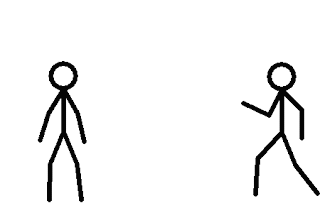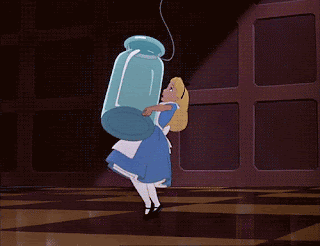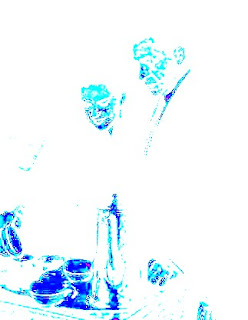If anyone
doubts for an instant, for even a flea’s sneeze, that I am an obsessive, then
hear ye and hark. Here comes another entry about Oscar Levant! Something about
the man just hooks me, and it’s not altogether a comfortable feeling.
I have a
horrible habit of sampling through books before I actually read them. It’s far
worse than reading the ending of a murder mystery, for this involves sucking
the marrow out of a book, vacuuming up the essence and thus insulting the
author by claiming to know what’s in it, and whether or not it’s worth
reading.
I have never,
I mean NEVER done this with a review copy: I have always read every word,
keeping in mind the golden rule. If a reviewer ever covered my work after a mere
skim or a skipping dip, I’d be devastated. But when it’s my favourite form, the
three-inch-thick, slightly skanky literary and/or Hollywood biography, I allow myself
to abandon the sequential. I am a speedboat bumping along on the crests of
exhilarating waves.

And in such a way am I bumping through this book. When I came
across the passage in A Talent for Genius about Oscar Levant and Judy
Garland, my heart beat a little faster. I can’t really reproduce these 2 1/2 delicious pages because it would violate every copyright ever invented. But I can
describe it in my own words, and somehow I must! Oscar was in his early 30s and already a major
celebrity as a concert pianist and radio personality. In various places in the
book, women refer to him as “sexy”, “tender” and even “a wonderful lover”, so
the big sloppy mug with the Walter Matthau looks must have had a thing or two
up his pianist’s sleeve (or in the tips of his Gershwin-playing fingers).
It was even
more surprising to learn just how readily he partook. Women, glamorous or
otherwise, were there for the sampling, but he didn’t just sample. He devoured.
Prostitutes were his first choice as a young man, with his rowdy older brothers
actually dragging him off to a brothel to celebrate his bar mitzvah.
"Oscar was sexy," one of his conquests claimed, "and women instinctively knew he'd be good in bed. . . particularly if they were a little thwarted in that department with their husbands."
Along with other people's wives, he was drawn to actresses,
gorgeous and glittery, many of them beautiful sexual predators. These were mere
hors d’oevres to Levant, who no doubt enjoyed himself with
them (and they with him!), but felt no real emotional attachment.
He was a
Victorian sort of male in that he kept sex and love so widely separated that
they barely inhabited the same planet. Eventually he married one of these
glittery women and made it last 33 years, so let’s hope he got over the
dichotomy enough to thrill her with those swift and talented fingertips.
Anyway, one
day came a momentous encounter at the Capital Theatre in New York – don’t ask me where that is (New York, maybe?). Judy Garland was still in her protracted
girlhood, her chest strapped down to play Dorothy in The Wizard of Oz.
But at 17, florid passions were beginning to bloom, and the first object of her
romantic obsession was . . . Oscar
Levant.
Yes. Oscar
Levant, rumpled and gangsterish (and who wouldn’t love a man who strode down
Fifth Avenue “hatless as usual, wearing Nick the Greek’s castoff overcoat”?),
with his tragic eyes and lips that suggested all sorts of dirty orgasmic things: somehow this unlikely poet of Tin Pan Alley had attracted the attention of a dynamo, a girl already hurtling towards phenomenal
stardom. When she sidled up to him and asked him, “What do you think of me?”,
he quickly replied, “You’re enchanting.” “Don’t give me that! What do you really
think of me?”
The two of them
had instantly recognized something essential in each other: both of them were terminally
insecure, with an incurable inner void that may have held the key to their magnetism. Still in her teens, Garland was a mere bud, and Levant must have known it, for he handled her
passionate love letters and gale-force eyelash-batting with extreme care. ANY
attention from him was welcome, obviously, but when she wrote to him confessing
her undying passion and existential angst, he recommended certain books for her
to read and music to listen to. Not exactly what she had in mind.
.jpg)
He must have believed that mentor was a safer role than lover for such a vulnerable creature, and of course he was right. In fact, they never did become lovers, but something better happened. I think this
was a case of mutual fascination, something that went on for years and years. Their paths would cross again and again because they ran in the same circles. Which is to say, they did a lot of running around in circles and falling down. They’d salute each other on the way down, maybe trading a pill or
two.
Thank God they never married. When he met the girlish bundle of insecurity that was Judy Garland, Oscar was already deeply involved with June
Gale, his future wife, but was not above using Judy to create the aphrodisiac
of jealousy. This helped June leap over the chasm of uncertainty about marrying such a walking dilemma.
Oh God, Garland and Levant! Am I the only one who has such trouble with them? They
both lapsed into an awful sort of tawdry deterioration at the end of their
lives. It was painful to watch. Garland kept dragging herself onto the stage,
singing in a raucous parody of her early brilliance, while Levant mercifully withdrew, but with body and soul
mangled, mental health completely ravaged. According to this book, there were
times when he really was insane, howling his anguish in mental hospitals, hallucinating,
and. . . I really can’t go on.
Life stinks.
You know it does. If YOUR life doesn’t stink, then you are damn lucky. Would
you want the sort of life these two had? Would you choose the life of ANY great
artist, since so many of them are ripped apart by sharks, either internal (Levant) or external (Garland)? Why must it be that way? If I
had a gun in my hand. . . but I don’t, and my life is boring and ordinary and I
am spectacularly untalented. Perhaps it’s just as well.















.jpg)



.jpg)







































